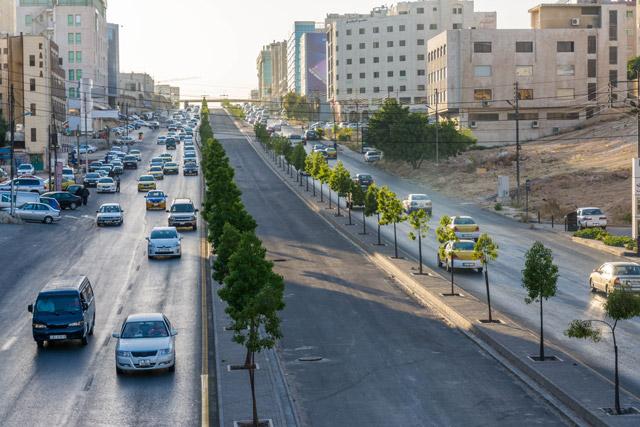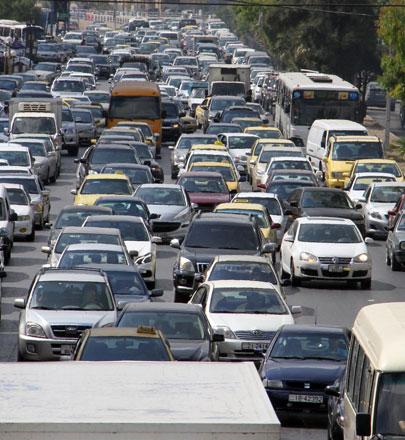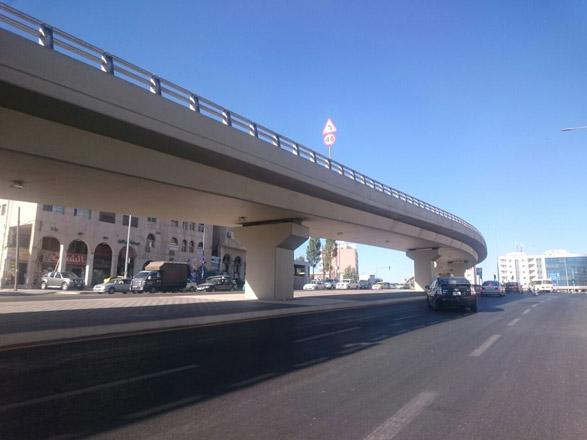You are here
‘GAM plans to transform challenges into investment opportunities’
By Hana Namrouqa - Apr 19,2017 - Last updated at Apr 19,2017

The Bus Rapid Transit project is part of the GAM's plan to ease traffic congestion in Amman (Photo by Amjad Ghsoun)
AMMAN — The absence of a proper public transport system and sound management of waste are two of the major problems Greater Amman Municipality's (GAM) can turn into investment opportunities for the private sector, a senior municipal official said on Wednesday.
Every service that Amman needs is a "window of investment opportunity" for the private sector, President of GAM Committee Yousef Shawarbeh said, calling on the private sector to explore investment potentials in waste management, transport, public parking, entertainment parks and an exhibition city.
During a meeting organised by EDAMA, a business association working on solutions for energy independence and environmental conservation, Shawarbeh highlighted that while the increasing population of Amman, which currently stands at 4.2 million people, is putting pressure on its resources and infrastructure and hindering the implementation of development plans, an efficient partnership with the private sector would improve the quality of services delivered in the municipality.
He noted that traffic congestion was among the main challenges facing the city, due to the absence of a proper public transport system, motorists' driving practices and the lack of parking spaces.
The Bus Rapid Transit (BRT) project is part of the municipality's solution to ease traffic congestion, the official said, noting that they are also exploring the idea of an underground railway system.
The BRT project will have a capacity of 120 passengers per bus, serving almost 25km of Amman’s streets, according to GAM officials, who said the transport system should benefit Amman’s residents for at least the next 20 years.
The project's final implementation is expected between the end of 2018 and the beginning of 2019.
Meanwhile, GAM announced late last year the signing of a memorandum of understanding with a Chinese railway engineering company to carry out a study on the feasibility of establishing a metro system in the capital.
The metro system would seek to ease traffic congestion in the capital by providing commuters with an alternative to their vehicles, GAM explained.
Shawarbeh said that the municipality also has other plans to ease the traffic on Amman's streets.
"A major strategy on the public transport system in Amman will be announced very soon," Shawarbeh stated.
Giving Amman residents and investors the opportunity to live and build housing projects on the outskirts of Amman is also part of GAM's plan to reduce pressure and ease traffic in the capital, he added.
He underscored that, in addition to its residents, some 500,000 people flock to Amman every day for work, and another 35,000 Syrian refugees are currently living in Amman.
With the increasing population, the municipality also faces mounting pressures in dealing with the waste generated each day.
GAM’s sanitation workers collect over 3,100 tonnes of household waste every day, but the amount is higher on weekends, according to officials.
The rising amount of waste is not the only problem, Shawarbeh said, noting that the unregulated process of dumping household waste is adding further pressure on the municipality's sanitation teams.
"People don’t take out the trash at a specific time of the day, but instead the process is around the clock in Amman; this means that sanitation workers have to work constantly over three shifts to prevent waste from piling up," he highlighted.
The senior official highlighted the issue of people who dig through trash bins between midnight and dawn, noting that this practice is driving recycling investors away as it reduces commercial opportunities for waste sorting and recycling.
"The challenge Amman is facing is the absence of strict and modern legislation that would allow the municipality to end certain practices and regulate many others," Shawarbeh said, noting that regulations governing waste management will be introduced.
Related Articles
AMMAN — A study is under way to determine whether establishing an underground railway system in Amman is possible and feasible, according to
AMMAN — Amman Mayor Yousef Shawarbeh on Tuesday said that the Greater Amman Municipality (GAM) will launch the trial run of the second route
AMMAN — The Greater Amman Municipality (GAM) on Saturday inaugurated the third phase of the Bus Rapid Transit (BRT) project at the highway p
















